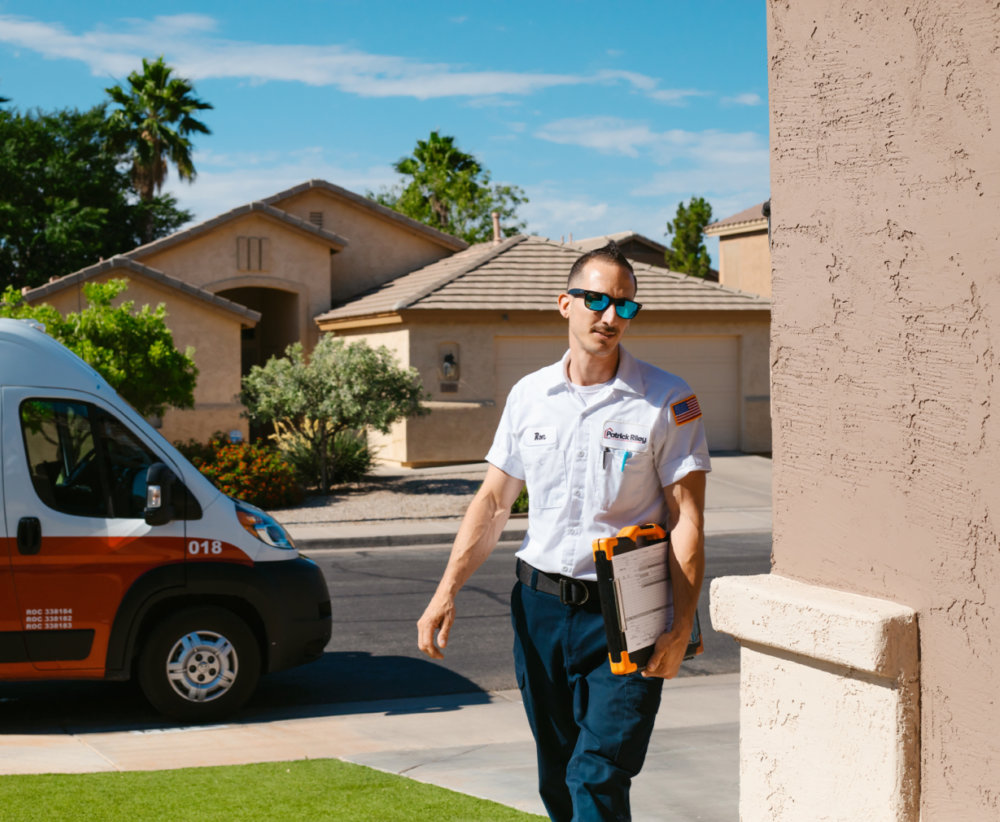Toilet Repair in Phoenix, AZ
Fast Toilet Repairs—Done Correctly
If your toilet is broken, you want it fixed quickly...and correctly. At Patrick Riley | Isley's, that's exactly the kind of service you'll get. Our plumbers are trained to follow the highest industry standards, so you can have assurance that your repair is being done on time, the right way.
We also offer:
Upfront, honest pricing
100% satisfaction guarantee on all of our work
Flexible scheduling
4.7 star rating on Google…

On this page:
What's Included
Your toilet repair includes:
Problem diagnosis
We won't rush into any repairs. Our plumbers always take the time to accurately diagnose the issue so they have the proper materials and tools to repair it.
Upfront pricing
The quote you're given before our plumbers start any work is the price you'll pay for our service. We will always give you an accurate quote from the beginning, so that you don't have to deal with any costly surprises.
Flexible financing options
Repairs can get expensive, which is why we offer flexible financing.
100% satisfaction guaranteed
If you're not happy with the service you received, we're not either. Our guarantee is 100% satisfaction or we'll redo your repair for free.
Price
Cost to repair a toilet in Phoenix

Factors that affect your toilet repair
- The part that needs to be repaired: The price of your toilet repair will be influenced by the part that needs to be repaired or replaced. For example, if the flapper needs to be replaced, your repair will be fairly inexpensive. If the toilet bowl is cracked, it will be a more expensive repair. Some common parts that need to be replaced during a toilet repair include: the flapper, handle, chain, valve, wax ring or tank.
- Severity of repair: Depending on what's broken, it may be more cost-effective to replace your toilet rather than repair it. The typical cost of a toilet replacement (including labor) is $220–$800+. If your toilet has multiple broken parts, replacing the entire toilet may be the more cost-effective option.
- Contractor you hire: Typically, the more qualified the contractor, the more expensive the cost of labor is. Plumbing repairs can be very technical and a job done poorly can result in additional (and expensive) repairs. We suggest getting multiple quotes and choosing a qualified contractor over an inexpensive one.
How Scheduling Works
Schedule your toilet repair in 3 steps
Contact us
Give us a call (602) 280-1793 or schedule an appointment online.
Schedule your repair
We will do our best to work around your schedule, so choose a time and day that works best for you.
Get a reminder call
We'll be sure to call you 30 minutes before we arrive so you know an expert plumber is on the way.
What Folks Are Sayin' About Patrick Riley | Isley's
Our Service Area in Arizona
We provide HVAC, plumbing, and electrical services in Glendale, Peoria, Scottsdale, Mesa, Gilbert, Tempe, Chandler, Carefree, Cave Creek, Avondale, Surprise, Sun City, Paradise Valley, Apache Junction, Queen Creek & Phoenix.
See full service area



